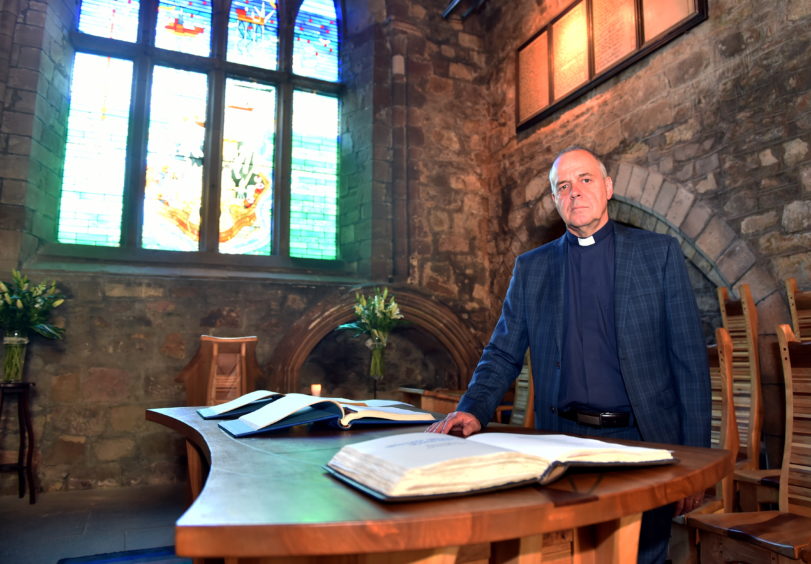
The North Sea’s oil and gas chaplain believes the Church of Scotland will make the “wrong decision” in coming years to divest from fossil fuels.
In May last year, the General Assembly voted narrowly to defeat a motion which called for the church to end its investment in these companies by the end of 2020.
Reverend Gordon Craig, based in Aberdeen, spoke out at the debate and maintains it is better to “influence from within” as an investor, but expects that view will dip into the minority before long.
He said: “I don’t think the Church of Scotland will continue to invest for much longer.
“There was a lot of anger last year when the motion to divest wasn’t carried and it was very close. There will come a time when they decide to divest.
“I think it is the wrong decision. I think trying to influence from within is a better way than standing outside and doing what you can.
“By divesting you have only one action but by staying in you can maintain an influence by joining perhaps other groups of similar small investors.
“That would be my line but I think that will be getting pushed into the minority side of the fence over the next few years. We’ll see.”
Mr Craig added it would be a “disaster” if the industry turned off the taps without having other commercial energy sources to replace oil and gas.
The church holds shares in BP, Shell and Total and the vote in May was 303 to 263 for maintaining that investment.
Reverend Gordon Strang, a former oil worker, brought the motion, arguing Scotland “simply cannot wait and if we are to have any hope of reaching net zero greenhouse gas emissions by 2045”.
Mr Craig is funded by Oil and Gas UK, regularly going offshore to meet the workforce and holds an annual remembrance service at the Kirk of St Nicholas in Aberdeen for those who have lost loved ones in the industry.
He argues work is taking place within the sector to reach net zero, but it is society that dictates demand for fossil fuels.
He said: “What the energy companies are effectively doing is supplying a need. That need is driven by the population, by society, and that’s where the change has to come from.
“It has to be individuals across society deciding this is something they really believe in – they’re going to put their heating down, they’re going to take the bus, they’re going to take the train.
“I don’t think the message is getting across and I know there’s an awareness within the industry that the message isn’t getting across and there needs to be work done on it. Each company, OGUK, are looking at how to improve that message.
“I feel sympathy for that because I think it is like pushing a boulder up a hill, nobody wants to hear that what the oil companies are saying. They’re just viewed as the villain of the piece and no matter what the villain says it can’t be trusted, basically.”
